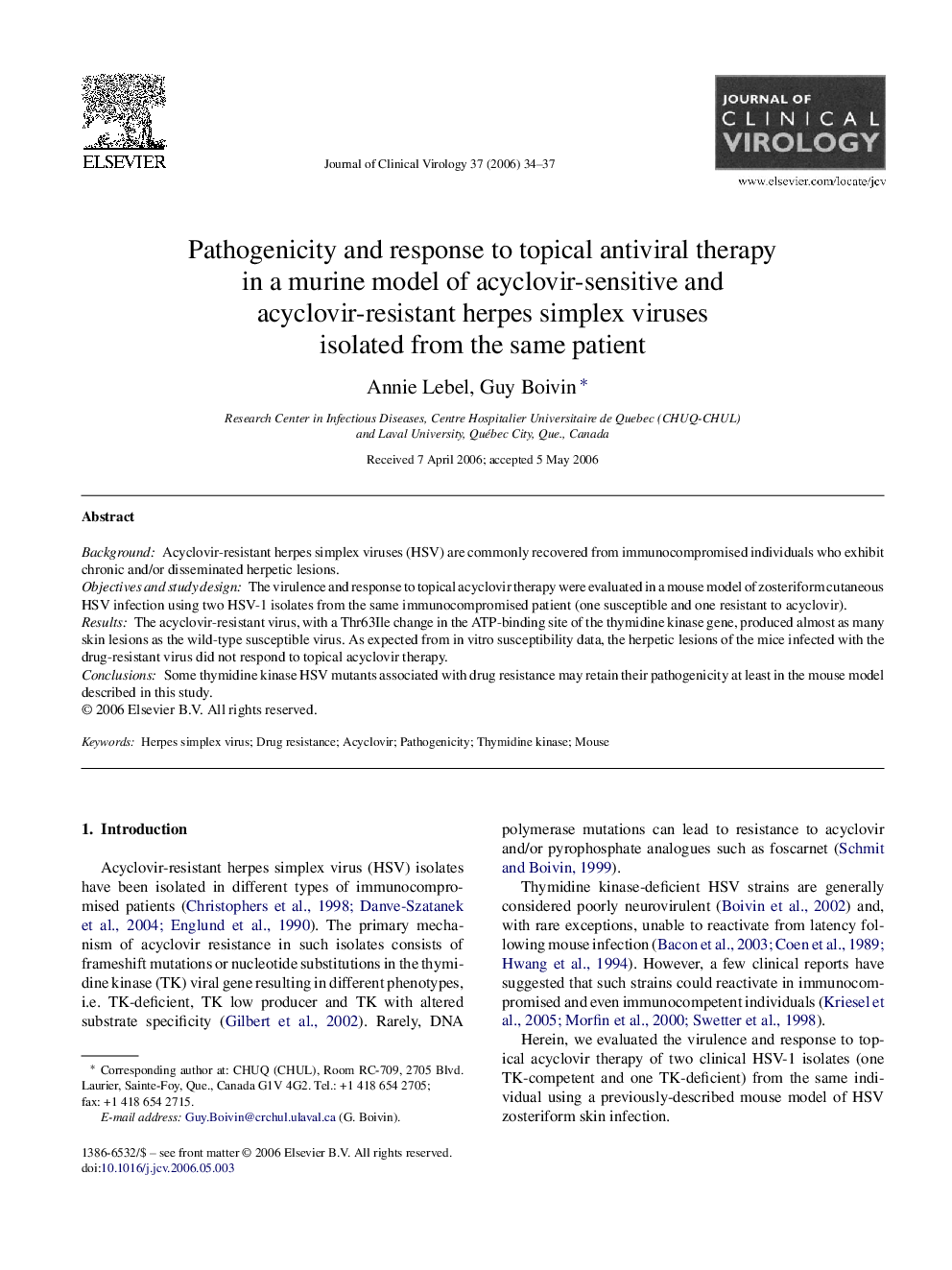| Article ID | Journal | Published Year | Pages | File Type |
|---|---|---|---|---|
| 3370311 | Journal of Clinical Virology | 2006 | 4 Pages |
BackgroundAcyclovir-resistant herpes simplex viruses (HSV) are commonly recovered from immunocompromised individuals who exhibit chronic and/or disseminated herpetic lesions.Objectives and study designThe virulence and response to topical acyclovir therapy were evaluated in a mouse model of zosteriform cutaneous HSV infection using two HSV-1 isolates from the same immunocompromised patient (one susceptible and one resistant to acyclovir).ResultsThe acyclovir-resistant virus, with a Thr63Ile change in the ATP-binding site of the thymidine kinase gene, produced almost as many skin lesions as the wild-type susceptible virus. As expected from in vitro susceptibility data, the herpetic lesions of the mice infected with the drug-resistant virus did not respond to topical acyclovir therapy.ConclusionsSome thymidine kinase HSV mutants associated with drug resistance may retain their pathogenicity at least in the mouse model described in this study.
